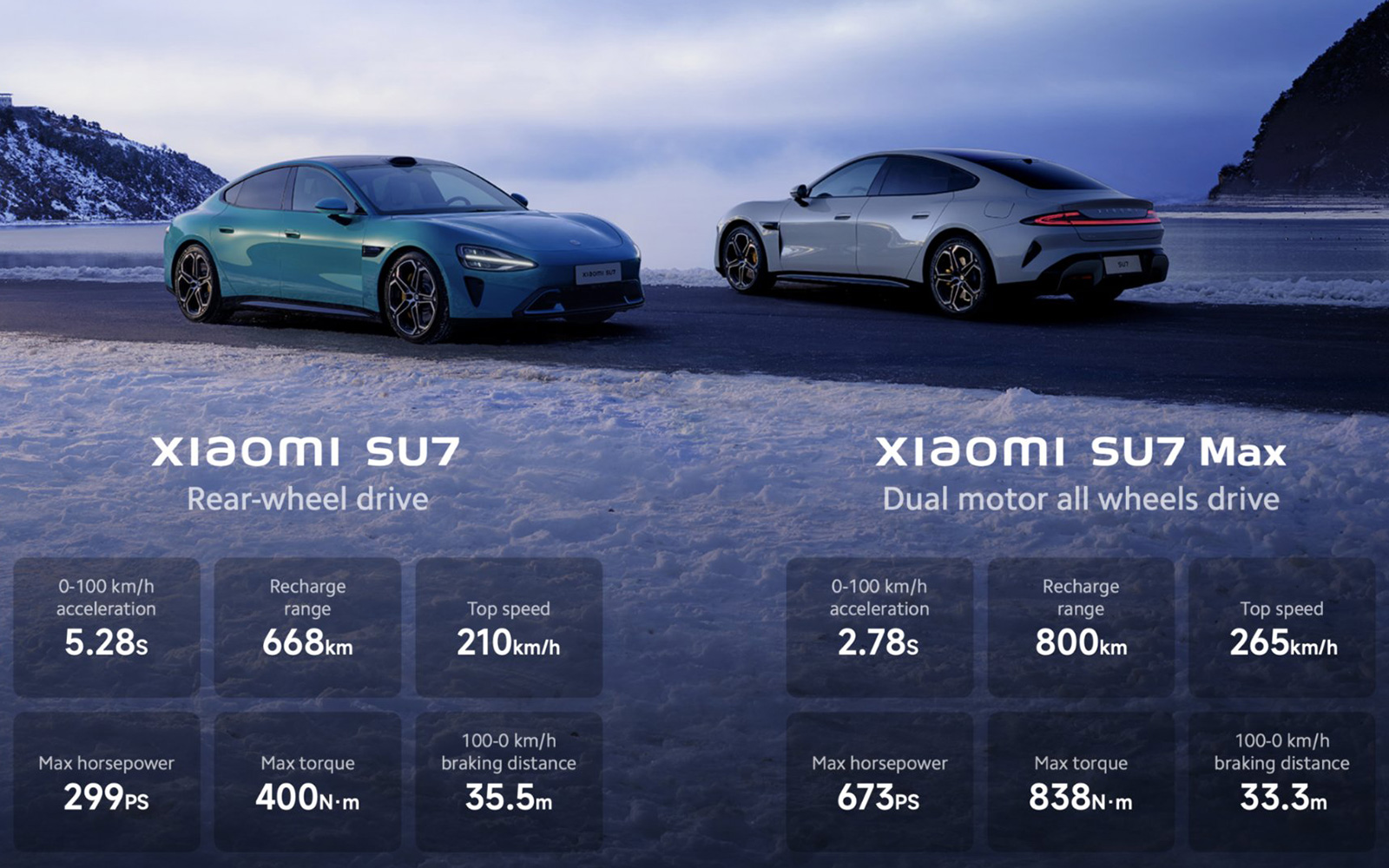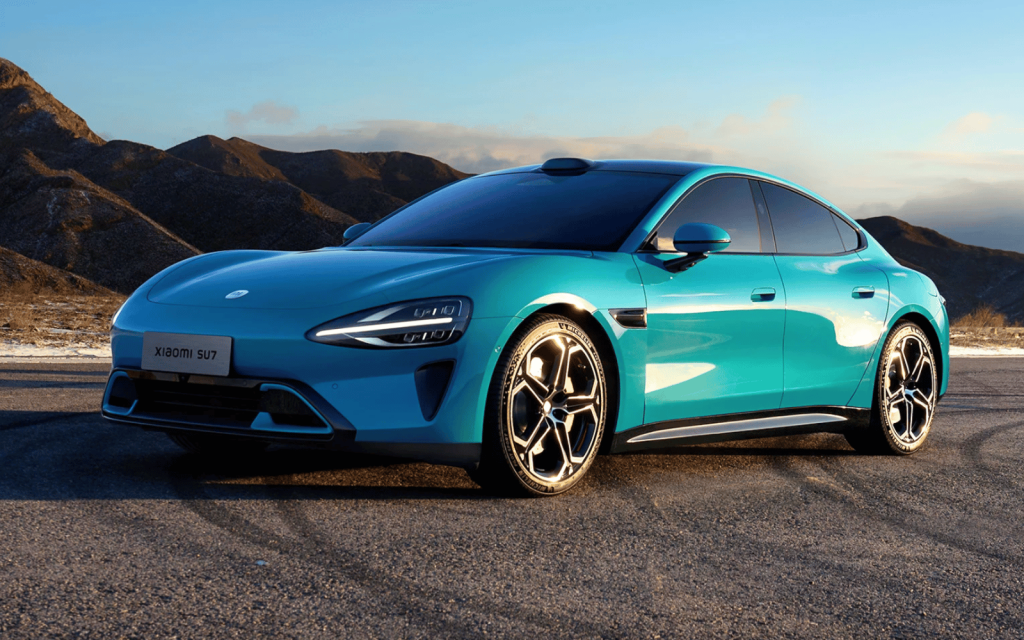It’s no secret that Xiaomi has had its sights set on an EV to rival Tesla’s offering. The Xiaomi SU7, if the company’s marketing is to be believed, is that vehicle. The newest electric vehicle on the planet was officially revealed in China at the end of December, with a price announcement due in the next few months.
Bottom line, though, is you’ll probably struggle to afford one. It’s not just that the launch is likely to be confined to China, at least at first, and that EVs are inherently expensive. Xiaomi hasn’t gone small with the SU7, serving up a vehicle around the same size as a BMW 5-series but with a sportier look than the conservative Germans would dream of offering.
SU7 is pronounced ‘soo-chee’
 You can expect similar prices to those demanded by the German brands, too. There were veterans from BMW and Mercedes on the design team, so the vehicles should look the part. The revealed specs — all claims for right now — suggest that performance will attain luxury EV standards as well.
You can expect similar prices to those demanded by the German brands, too. There were veterans from BMW and Mercedes on the design team, so the vehicles should look the part. The revealed specs — all claims for right now — suggest that performance will attain luxury EV standards as well.
There are two SU7 models — a stock version which uses Xiaomi’s HyperEngine motors on the rear wheels only and then a Max version that offers all-wheel drive. The 668km range and 210km/h top speed for the standard EV is plenty attractive on its own but Xiaomi’s Max version should go further and faster, accelerating to 100km/h in under three seconds. At least, that’s what the marketing material says.
The SU7 Max should support 800V charging for its 101kWh battery. The standard version tops out at 400V charging with a 73.6kWh battery. Some of that power will be directed toward the in-car systems. Being Xiaomi, with its focus on smart home tech, that experience promises to be substantial.
In-vehicle tech for the SU7 uses Xiaomi’s HyperOS system for control and Qualcomm’s Snapdragon 8295 processor, an automotive-specific chipset, for power. There’s a main 16.1in display that’ll control everything from media playback to your home appliances and optional magnetically-mounted screens behind the driver and passenger’s seats. Other smart functions include autonomous driving (again, unsurprising) thanks to Xiaomi Pilot, LiDAR, and Nvidia chips. The company will conduct autonomous driving tests across China sometime this year.
Xiaomi, in addition to announcing the SU7 and its Max counterpart, also teased a new HyperEngine V8s electric motor that’ll supposedly give Tesla’s own tech headaches. First, though, we’ll wait for pricing and availability for this lot. It’s probably going to sting.




